Alex Albon will race in the revamped DTM series in 2021, competing alongside Red Bull junior Liam Lawson for a number of rounds as part of a Red Bull-backed effort.
The move makes the British driver the latest in a long line of Formula 1 racers who turned to the Germany-based series and their exploits had varying levels of success, while some even returned to the championship after their tin-top exploits got them an F1 seat in the first place.
Which former F1 drivers took to DTM prior to Alex Albon’s series debut later this year? MotorsportWeek.com takes a closer look.
Timo Glock

Timo Glock spent five seasons in Formula 1, racing for Toyota, Virgin and Marussia, with his role in the last-corner title decider in 2008 etched in the championship’s folkore. Glock mounted the podium on three occasions though his prospects waned once Virgin/Marussia’s dire lack of performance dragged on.
After initially signing a deal to stay with Marussia in 2013, he relinquished his role in order for the team to chase greater commercial options, and instead clocked on to compete for BMW as a works driver in the DTM, where he has remained until the present day. He took his first race win at that year’s Hockenheim finale and would take four more throughout the years, most recently finishing second at the Lausitzring after narrowly losing out to stablemate Lucas Auer.
Glock finished fifth in the 2020 standings, matching his best career result, achieved in 2018.
Robert Kubica

The most recent example of an F1 driver transitioning to DTM prior to Albon, Robert Kubica joined DTM in the dying days of the Class One era. He piloted a privately entered, ART-run BMW with backing from personal sponsor Orlen, but struggled greatly in a year where BMW fell behind rival Audi.
He was often found near the end of the grid in the early races and would score his first points at the seventh round, but ended his season on a remarkable high when he took a surprise third place in the fourth race of the Zolder double header.
Mika Hakkinen
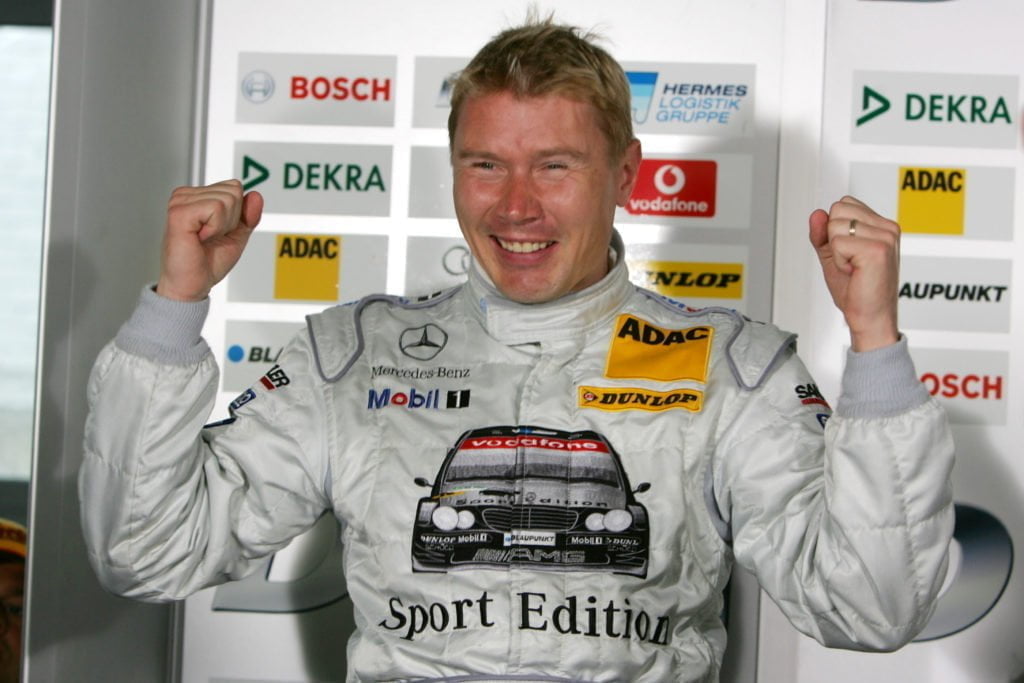
Double Formula 1 World Champion Mika Hakkinen spent the final three years of his competitive career in DTM with HWA Team.
Hakkinen began his DTM career in 2005, following three years out of full-time competition, and took a podium in only his second race. One race later, he would taste victory again as he won at Spa-Francorchamps – a venue the series would not visit again until 2020.
After a winless 2006 that saw the Flying Finn pick up two podiums, he won at the Lausitzring and Mugello in 2007. However, his time in DTM would come to an ignominious end when he was penalised, fined and disqualified for a collision with Martin Tomcyzk.
Hakkinen announced his retirement from competitive motorsport in November 2007 although he has contested a handful of sportscar races since then.
Ralf Schumacher

Both Schumacher brothers have competed in DTM at some stage in their careers, and both did it with Mercedes. The main difference is that Michael drove in DTM prior to his stint in Formula 1, while Ralf stepped into tin-top machinery after his time in F1 came to a close.
Ralf spent his decade-long, Formula 1 career driving for the likes of Jordan, Williams and Toyota, taking six wins, but joined Mucke Motorsport in 2008 after a potential drive at Force India came to nought.
What followed was a somewhat underwhelming five-year tenure in which he started 52 races, took one pole position in 2010 and finished on the podium twice in 2011 before stepping away from driving at the end of 2012.
David Coulthard

You’d be forgiven for not remembering David Coulthard’s three-year stint in DTM. For one thing, the Scotsman is one of those drivers who is forever linked to F1 thanks to his tenure driving for the likes of Williams, McLaren and Red Bull, not to mention his exceptionally successful post-driving career as a TV pundit and co-commenator.
The other reason you might have forgotten Coulthard’s time in DTM is because, well, it was a tad forgettable. Driving for Mucke Motorsport, he competed in 32 races, but scored a single point in each of his first two seasons. His third season, which would turn out to be his last, was only slightly better, as a fifth place at the Norisring elevated him to a career-high 15th in the standings.
Heinz-Harald Frentzen

After a lengthy F1 career, which included wins with Williams and Jordan, Frentzen joined DTM in 2004 after he was encouraged to do so by the success of another F1 refugee, who we’ll get to in a bit.
The German joined Opel, but the manufacturer could not match the might of Audi and Mercedes, and he was regularly outpaced. He would take the first podium of his DTM tenure after starting from pole in Brno.
A second podium followed at Zandvoort and after Opel left at the end of 2005, he moved to the Abt Sportsline Audi squad for 2006. He would score two more podiums, but called time on his DTM career at the end of the year.
Jean Alesi

After ending his 201-race Formula 1 career with a stint at Jordan in 2001, Alesi moved into the DTM in 2002. The popular Frenchman enjoyed a relatively successful stint with Mercedes, first racing for Persson Motorsport and later HWA Team, the same outfit that would employ his son Giuliano during the 2020 F2 season.
Alesi would finish on the podium in only his second-ever DTM start and followed that up with two wins and another podium in his debut season, finishing fifth in the drivers’ standings. In 2003, he would again finish fifth with two more victories and would score one final win in 2005.
He would not stand on the podium again after that, but was a regular points scorer and retired from DTM at the end of 2006. He raced at Le Mans in 2010 but retired from the sport after a fruitless attempt at the Indianapolis 500 in 2012.
Keke Rosberg

While Keke Rosberg’s four-year stint as a driver in DTM did not set the world on fire, the 1982 World Champion’s name has left a mark on the series that has lasted right up until the present day. Rosberg debuted with AMG in 1992 after leaving the Peugeot Sport endurance programme and took the sole win of his DTM career in the sixth round at Wunstorf.
After two years with Joest, he set up his own outfit, Opel Team Rosberg in 1995. Team Rosberg, first with Opel and Mercedes and later with Audi, has become a mainstay in DTM. The team gave Rene Rast his DTM debut in 2016, and has seen since a meteoric rise as the German stayed with Team Rosberg en route to his three DTM titles in 2017, 2019 and 2020.
Paul di Resta

Paul di Resta is something of an exception to this list, as he is one of the few drivers who did not transition to DTM, but simply returned to the series that got him into F1 in the first place. Di Resta debuted in DTM in 2007 and his Mercedes exploits, including the title in 2010, got him a drive with Force India for 2011.
The Scotsman stayed with the team until 2013 and then returned to the series with Mercedes once his Formula 1 stay concluded. While he would not be as successful as in his first stint, he would score five victories and numerous podiums and finished third in the 2018 standings behind Gary Paffett and Rene Rast.
In 2019, he drove for the ill-fated R-Motorsport Aston Martin operation and has since moved onto endurance racing, taking a class win in the 2020 24 Hours of Le Mans, and also carried out punditry and co-commentary in Formula 1.
Alessandro Nannini

Alessandro Nannini’s motorsport story is eerily similar to that of Robert Kubica. In 1990, Nannini’s promising career was cut short when he was involved in a helicopter crash in Italy. He survived the crash but suffered serious injuries to his arm, which would prevent him from ever racing in F1 again.
However in 1993 he joined Alfa Romeo in the DTM. Driving the glorious Alfa Romeo 155 V6 TI, Nannini won the final two rounds of the 1993 season and followed that up with four more wins in 1994. His best year was still to come, however. As the DTM morphed into the International Touring Car Championship, Nannini remained with Alfa Romeo.
After a partial season in 1995, he mounted a serious challenge for the 1996 title, scoring seven wins, more than anyone that season, but a lack of consistency and five retirements left him only third in the standings behind Manuel Reuter and Bernd Schneider.



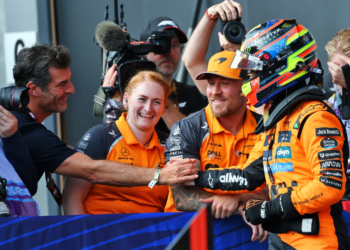
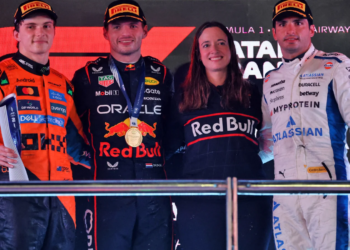
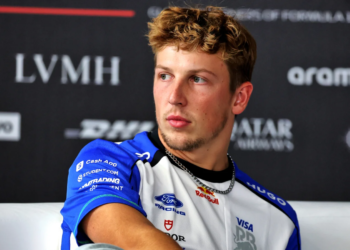
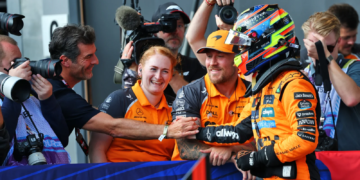
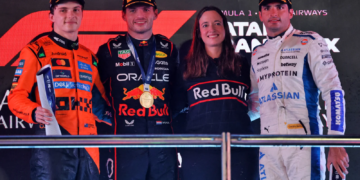
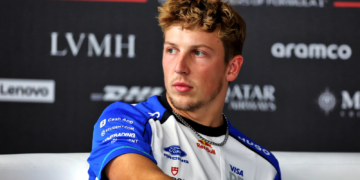
Discussion about this post